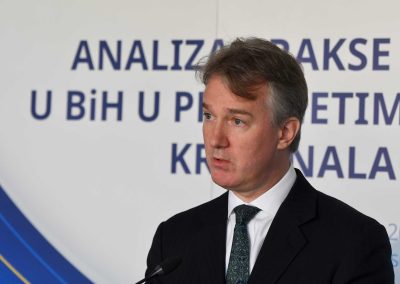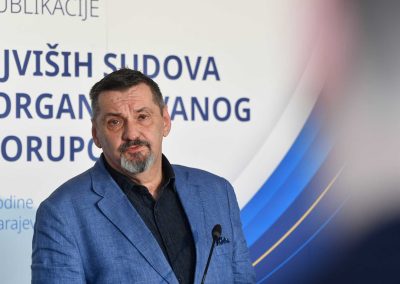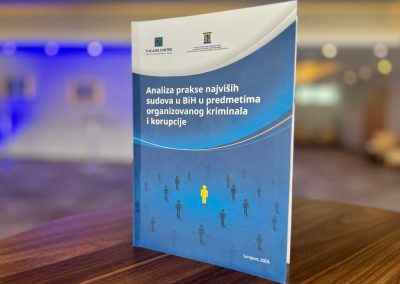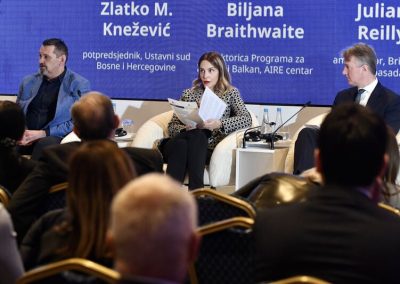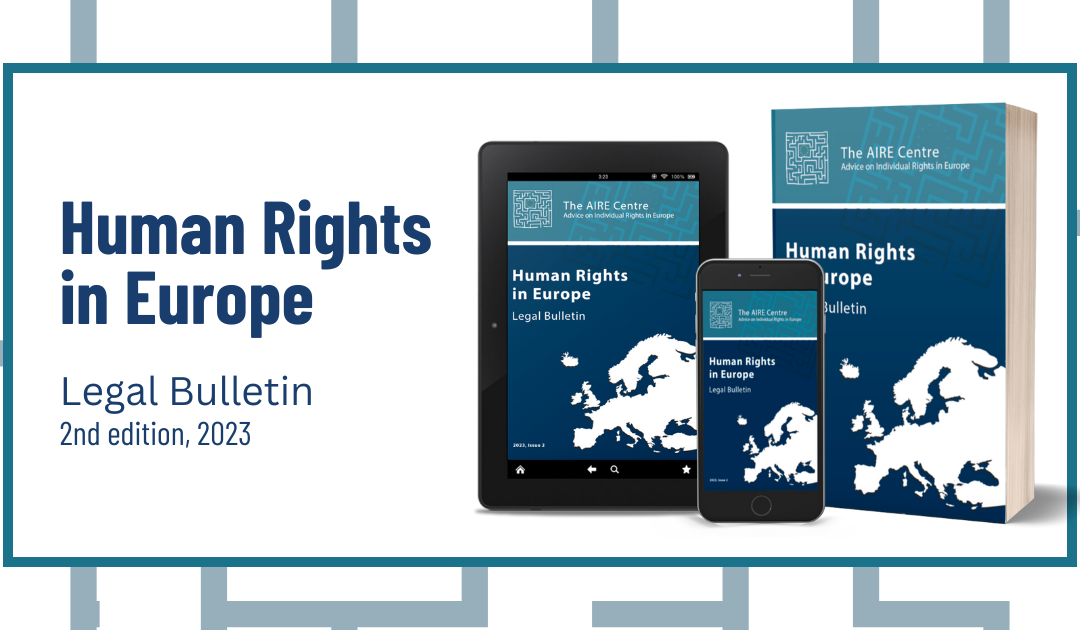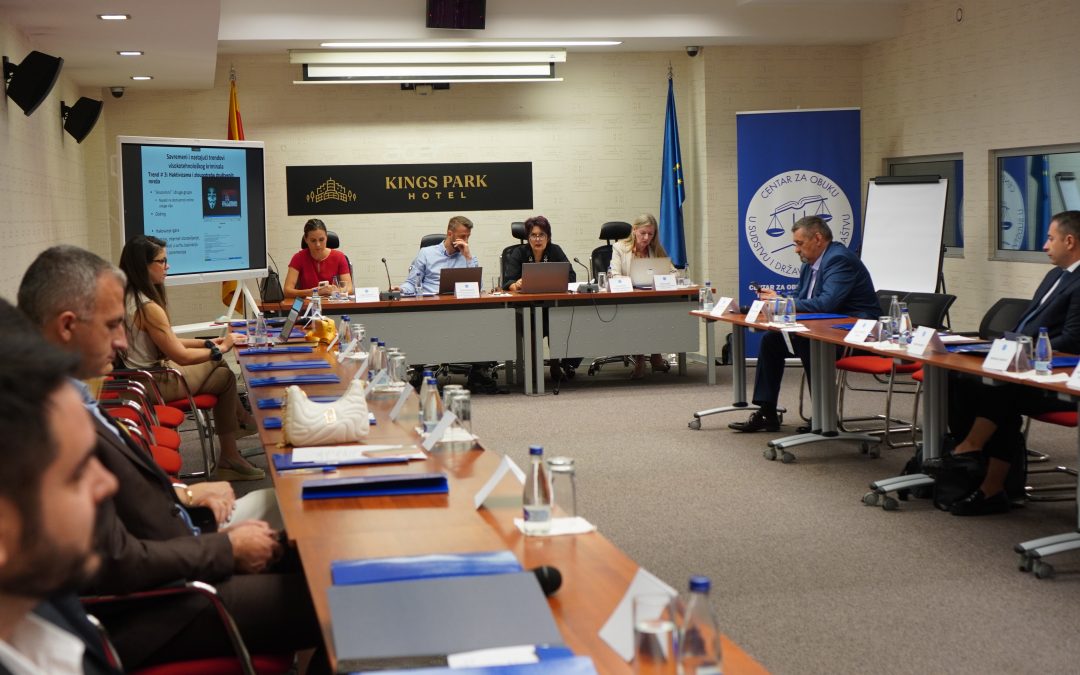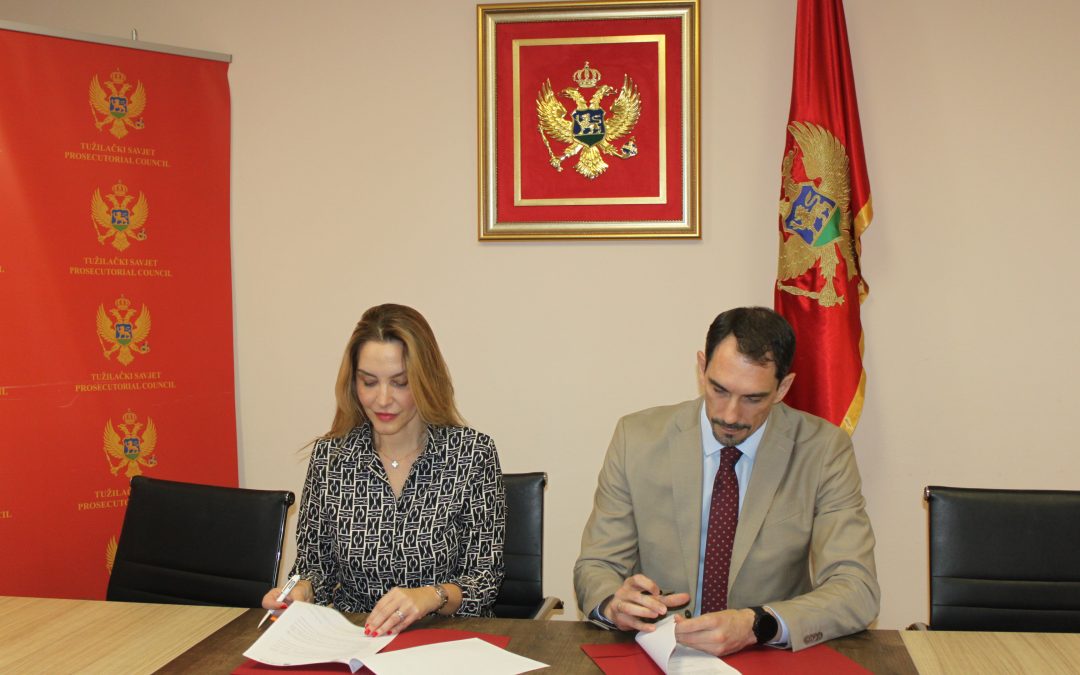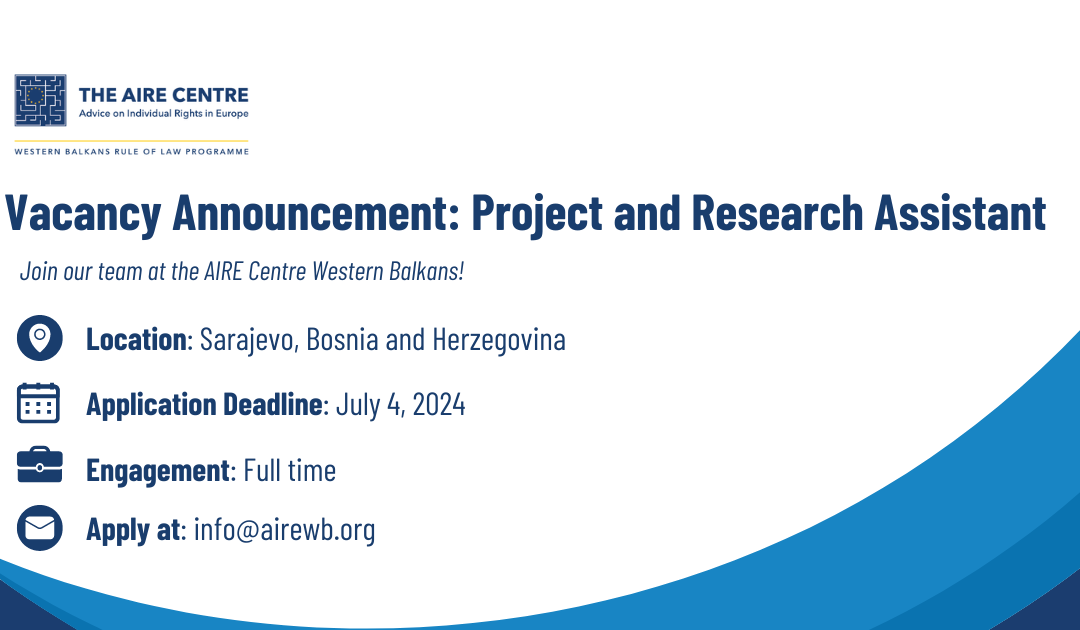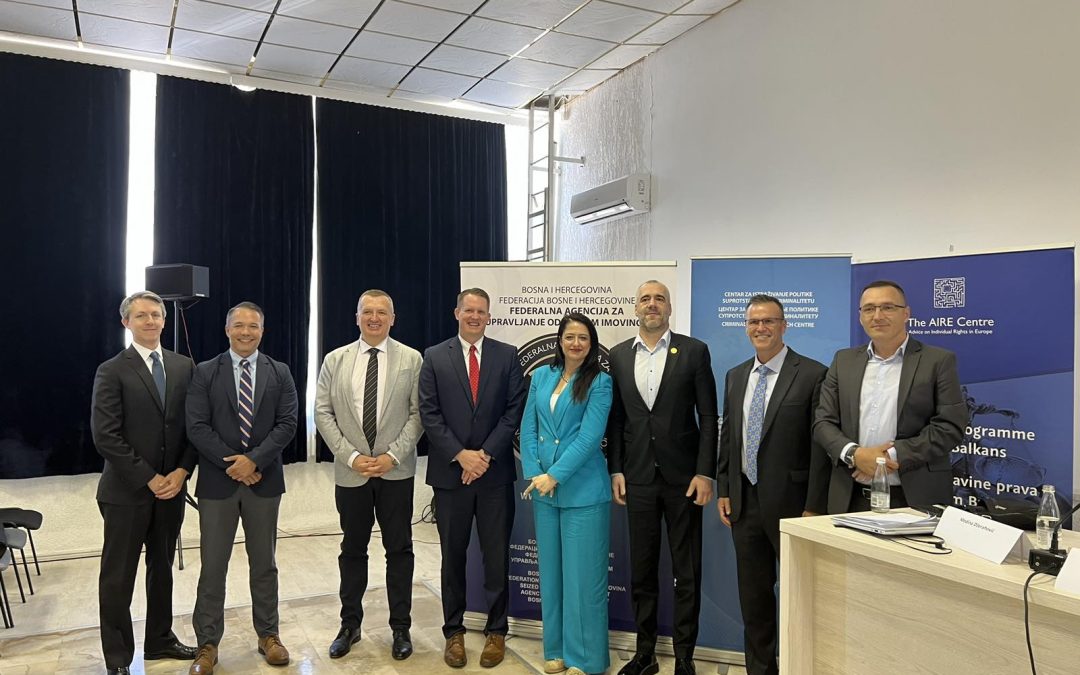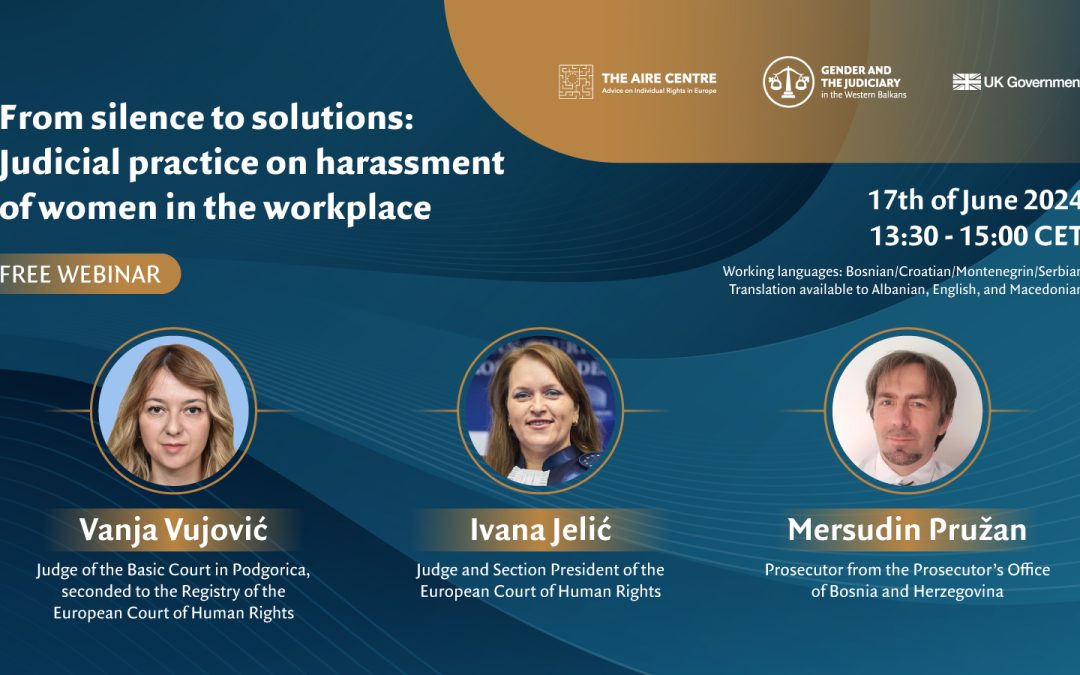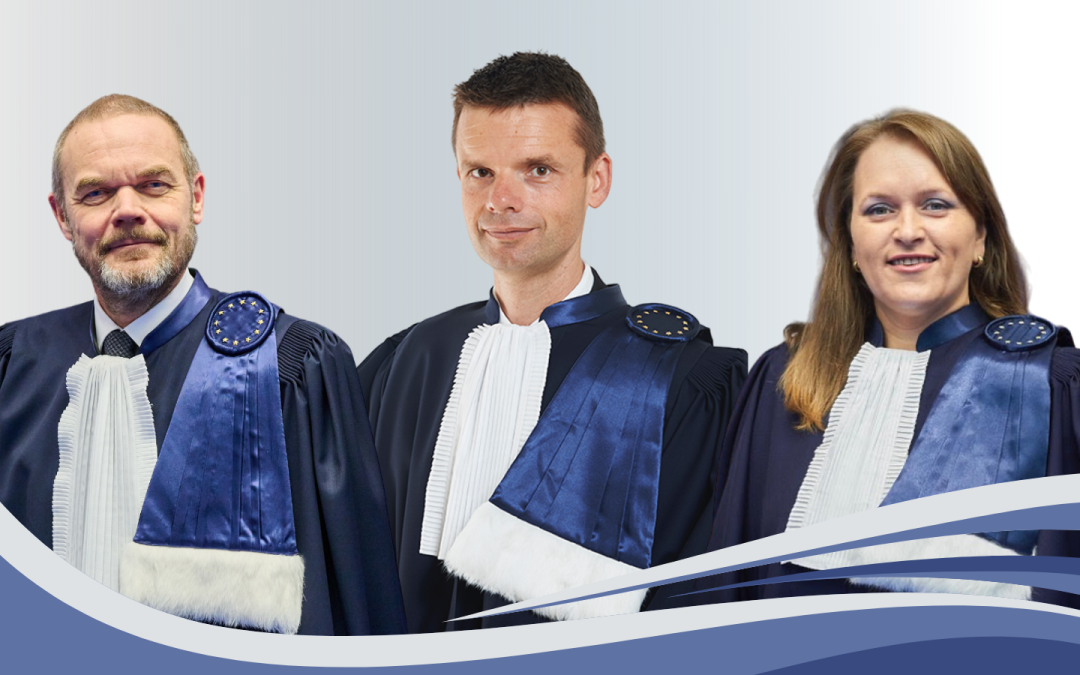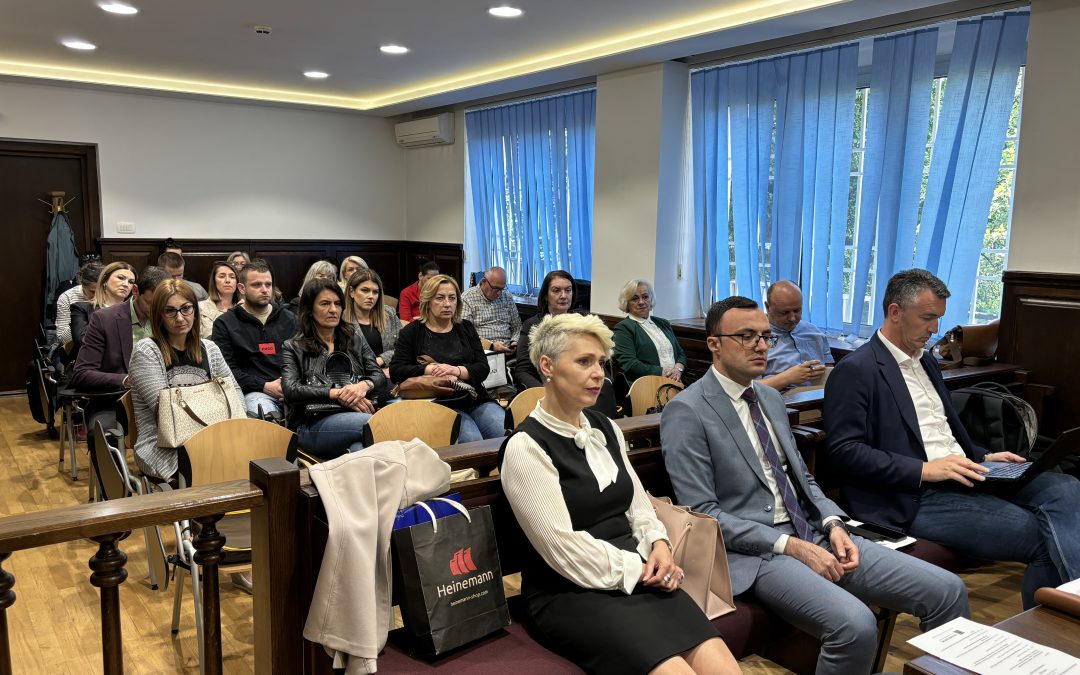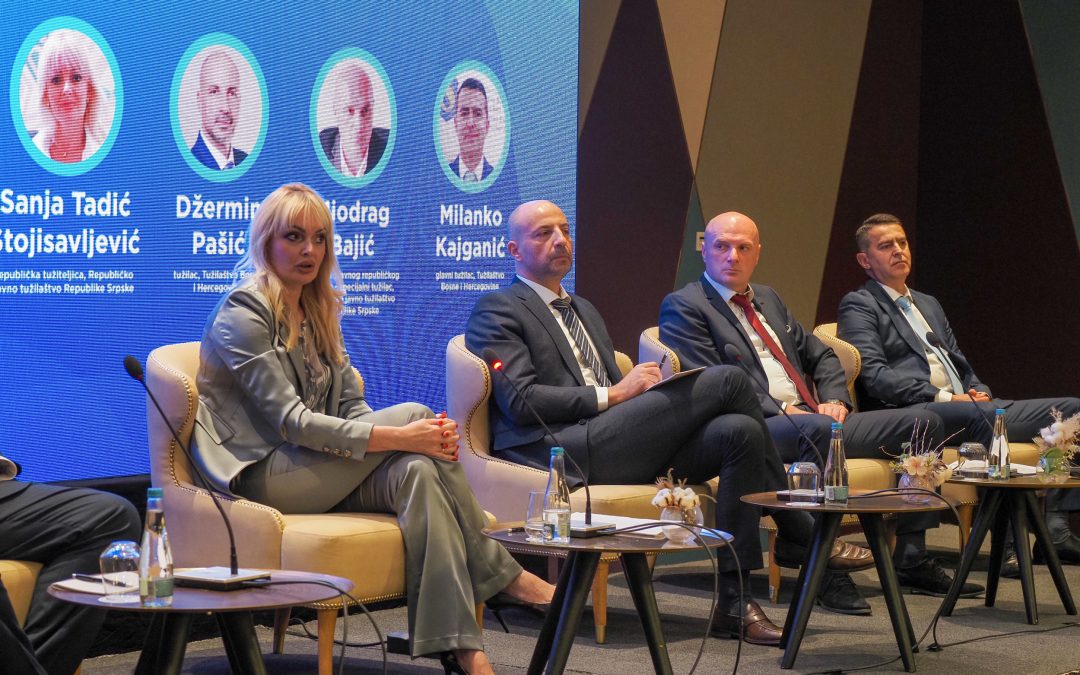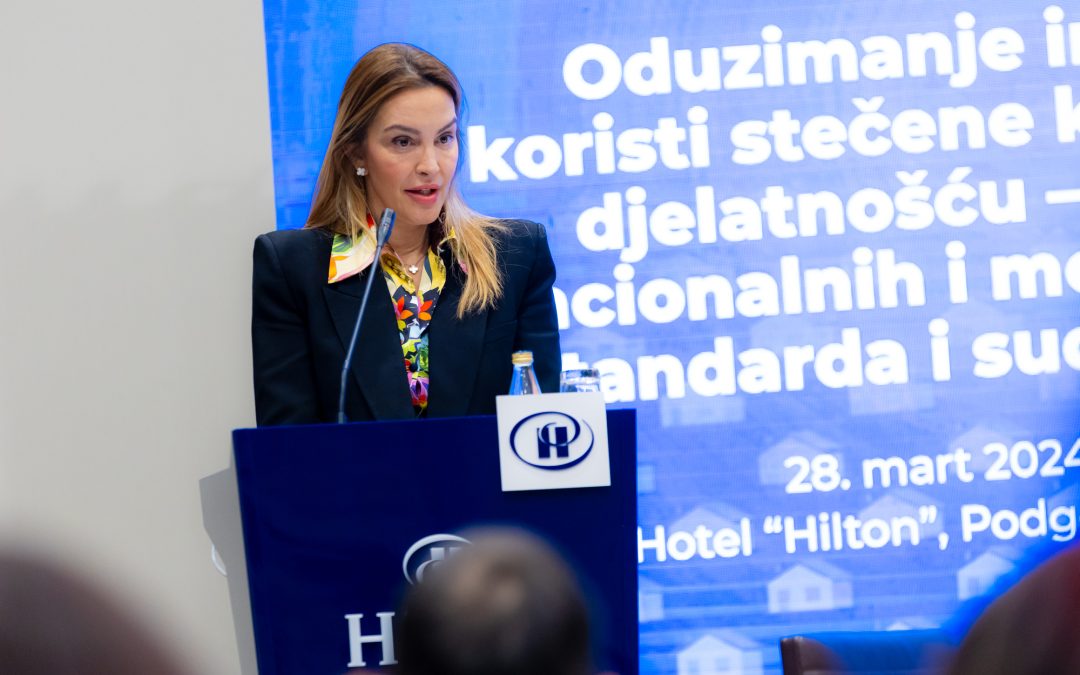„Courts in Bosnia and Herzegovina have a capacity to deal with the challenges relating to the proceedings and trials in the cases of organised crime and corruption”, is a conclusion of the publication “Analysis of the Case Law of the Highest Courts in Bosnia and Herzegovina in Cases of Organized Crime and Corruption” which is presented today in Sarajevo.
The Constitutional Court and AIRE Centre prepared the analysis, with the support of the Government of the United Kingdom, and in cooperation with the Court of Bosnia and Herzegovina, the Supreme Court of the Federation of Bosnia and Herzegovina, the Supreme Court of the Republika Srpska and the Appellate Court of the Brčko District of Bosnia and Herzegovina.
The analysis offers a systematic and comprehensive review of a significant number of court judgments in Bosnia and Herzegovina in cases of organised crime and corruption, and provides insight into the way courts process specific criminal offences.
Zlatko Knežević, the Vice-President of the Constitutional Court of Bosnia and Herzegovina, stated that “The analysis of the case law of the highest courts in Bosnia and Herzegovina in the cases of organised crime and corruption” is a key point in the evaluation of the overall state of the trial in these areas.
“At the same time, it gives a positive assessment of the work of the courts, which, notwithstanding the complexity of the cases, apply domestic laws and European standards. It is also an invitation to analyse the work of prosecutor’s offices and police agencies, because there is a cause-and-effect relationship between these three levels in achieving the ultimate goal, combating organised crime and corruption,” added judge Knežević.
While presenting the publication, it was pointed out that court case law is a key element in combating organised crime and corruption.
Julian Reilly, the British Ambassador to Bosnia and Herzegovina, emphasised that organised crime and corruption pose a serious threat to the stability, security and economy of Bosnia and Herzegovina, and that the courts in Bosnia and Herzegovina need tools to act against these threats in order to do more in building a public trust in the judicial system.
“The United Kingdom is proud to work with the Constitutional Court of Bosnia and Herzegovina and the AIRE Centre in developing the analysis of case law in cases of organised crime and corruption. We are especially proud of the fact that prominent legal experts and judges, who are directly involved in the work on cases of corruption and organised crime, worked on the analysis. We are looking forward to seeing the results of this analysis. This analysis focuses on a number of important issues. We discussed some of them during the Annual Judicial Forum in Bosnia and Herzegovina last November. The Forum highlighted the challenges faced by the legal system due to the use of modern technologies by criminal groups in Bosnia and Herzegovina, as well as in other countries. It is crucial for Bosnia and Herzegovina to adapt to these new challenges, to provide law enforcement agencies, prosecutors and judges with the knowledge and tools needed to bring criminals and corrupt politicians to justice. The citizens of Bosnia and Herzegovina expect exactly that”, Ambassador Reilly added.
The analysis showed that the courts in Bosnia and Herzegovina process corrupt criminal offences relatively quickly, and that there are no major problems in proving them, but that the issue of abuse of influence and position continues to be a problem both in the indictment and in the adjudication.
This publication also identified a number of issues that need to be discussed professionally. In the analysis, it was stated that the courts do not have a uniform practice regarding the punishments in cases of organised crime and corruption. Additional work needs to be done to fulfil the legal requirements for the determination and extension of orders for the application of special investigative actions, as well as the use of statements of witnesses who entered into a guilty plea agreement in the course of the main trial. The rapid advances of modern means of communication will inevitably face the courts with evidence obtained by the use of encrypted communication or some form of international assistance. Therefore, new positions should be taken and new practice should be created on these – that is one of the conclusions of the Analysis.
Biljana Braithwaite, Director of the AIRE Centre Western Balkans Program, emphasised that the efficient work of courts and prosecutor’s offices is key to the prosecution of organised crime and corruption, and that therefore the criminal justice system should continuously follow the practice of the Constitutional Court of Bosnia and Herzegovina and the European Court of Human Rights.
“The fight against serious forms of organised crime and corruption presents challenges for legal systems around the world. This is why it is crucial that the courts and prosecutors’ offices apply European standards and ensure efficient prosecution of criminal offences that seriously threaten the welfare of citizens. In the next two years, the AIRE Centre will actively provide support to courts and prosecutors in Bosnia and Herzegovina, in order to strengthen and improve the work of the criminal justice system. Efficient judicial institutions are the guarantor of the progress of any society”, added Director Braithwaite.
The presentation of the Analysis of the Case Law of the Highest Courts in Bosnia and Herzegovina in Cases of Organized Crime and Corruption was attended by judges of the courts from Bosnia and Herzegovina and the European Court of Human Rights, prosecutors, lawyers, representatives of the High Judicial and Prosecutorial Council of Bosnia and Herzegovina, institutions, international organisations, and directors of Centres for the Education of Judges and Prosecutors.
The publication was created within the framework of the AIRE Centre’s project “Strengthening/Reinforcing the Capacity of the Judiciary to Fight against Organized Crime and Impunity in Bosnia and Herzegovina”.
